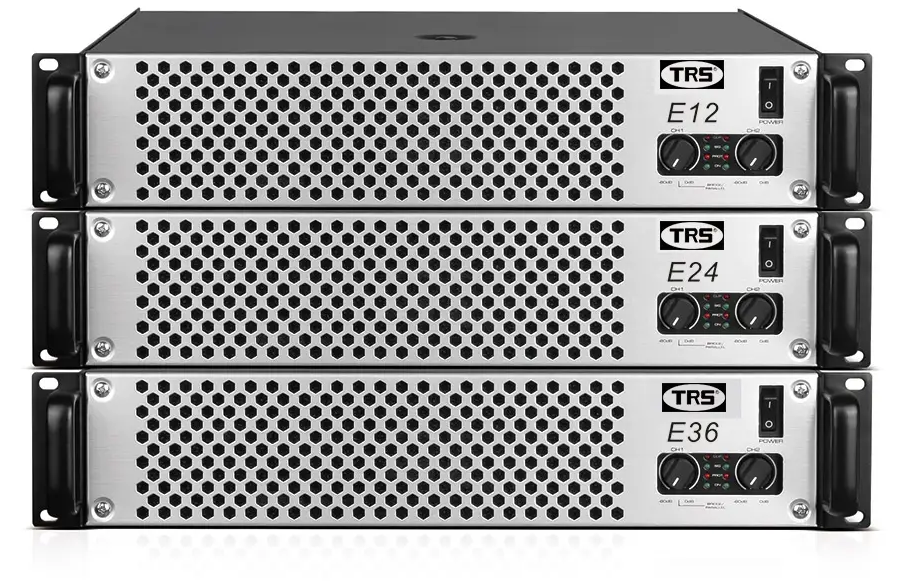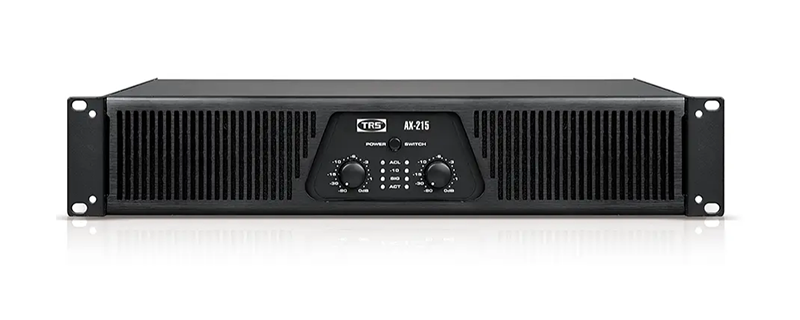Whether in a home entertainment system or a live concert venue, amplifiers play an important role in improving sound quality and delivering a rich audio experience. However, if you have ever carried or attempted to lift different amplifiers, you may have noticed a noticeable difference in their weight. This leads to a natural curiosity – why are some amplifiers heavy and others light? In this blog, we will explore the possible factors behind this distinction.
E Series Two Channels Power Amplifier
1. Power supply and components:
The main reasons for weight differences between amplifiers are their power capabilities and the components used. Heavy-duty amplifiers typically have sturdier power transformers, larger capacitors, and heavier heat sinks. These components are integral to managing high power levels without compromising sound quality. In contrast, lighter amplifiers tend to use smaller, more energy-efficient components designed for moderate power levels.
2. Technology: Digital vs. Analog:
Another key factor that affects the weight of an amplifier is the technology used. Traditional analog amplifiers, known for their warm and rich sound, typically have heavier transformers and larger output stages, resulting in increased weight. However, digital amplifiers, with their efficient switching power supplies and compact circuitry, can significantly reduce weight without sacrificing audio performance. Lightweight digital amplifiers are popular for their portability and energy efficiency.
3. Efficiency and heat dissipation:
Amplifiers that produce more power tend to generate a lot of heat, which requires efficient heat dissipation mechanisms. Heavyweight amplifiers often feature larger heat sinks and airflow systems to dissipate heat efficiently, ensuring consistent performance and longevity. Lightweight amplifiers, on the other hand, can use smaller heat sinks or rely on advanced cooling technologies like fan-assisted cooling or heat pipes, which reduces weight and increases portability.
4. Portability and application:
The intended application and target audience also affect the weight of the amplifier. Professional audio amplifiers used in concert or recording studio settings are typically heavy and rugged to withstand rigorous professional use. These amplifiers prioritize power, durability, and sound quality over portability. In contrast, lightweight amplifiers are ideal for mobile setups, home use, or situations where frequent transport is required.
In conclusion:
Weight differences between amplifiers are due to a combination of factors such as power handling, component selection, technology, efficiency, and intended application. Although heavy amplifiers usually mean more power and performance, technological advancements have allowed lightweight digital amplifiers to deliver superior audio quality. Before choosing an amplifier, it’s important to consider your specific needs, whether it’s power, portability, or a balance between the two, so you can make an informed decision.
AX Series Professional Amplifier
Post time: Sep-27-2023


